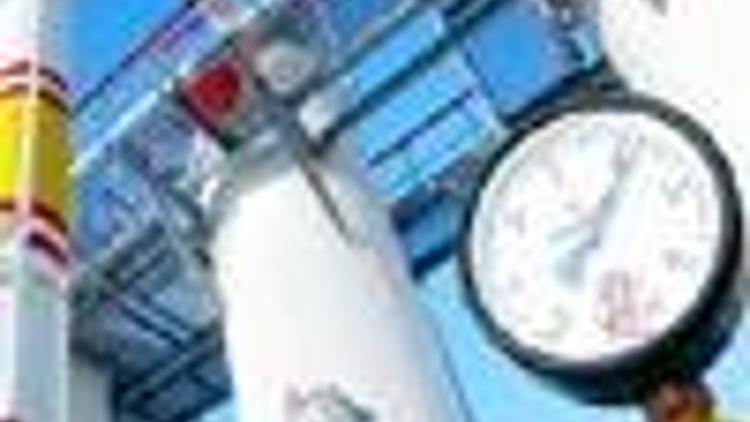Gas crisis no near-term threat to Turkey
Güncelleme Tarihi:

ISTANBUL - The natural gas dispute between Ukraine and Russia shows that Turkey needs to consider alternative energy sources in the long term, but there seems to be no need to worry if the dispute is resolved in a timely manner, experts believe.
As the latest dispute enters its eighth day, with the second day of no gas sent to Europe, Balkans or Turkey through Ukraine, no deal was foreseen after the surprise meeting between Russian Gazprom's Alexei Miller and Ukrainian Naftogaz's Oleh Dubina in Brussels early yesterday.
In Turkey, dependence on natural gas and Russia in particular for its energy needs has translated into an anxious wait for the dispute to be resolved. Production at three Turkish power stations stopped yesterday even though there seems to be no cause for concern for residential and industrial users.
Former managing director of the state-owned Turkish pipeline company BOTAŞ, Mete Göknel, said he did not see Turkey being affected by the dispute as seriously as the European Union, but added a cautionary note that this would be the case as long as there was no halt in gas flows from Iran.
He said Iran’s offer to help Turkey was gracious, but not realistic. "The recent statement from Iran was a gesture and a message to Turkey’s public, but the truth is there is already a growing demand for natural gas in Iran and they are also dependent on Turkmenistan to some extent," said Göknel.
Blue Stream and Azeri gas
Russian gas deliveries from the western pipeline through Ukraine have halted while Gazprom's Blue Stream pipeline to Turkey is working at full capacity of 48 million cubic meters.
Energy analyst Necdet Pamir said Turkey’s average daily need was 160 million cubic meters of gas in winter months.
He said the figure dropped to 120 million cubic meters as of Wednesday, which he interpreted as the direct result of a fall in demand for gas because of the industrial slowdown.
He said the western pipeline through Ukraine brought some 45 million cubic meters a day. "As Russia increased the capacity of Blue Stream pipeline from 40 to 48 million cubic meter per day, still there is a 37 million cubic meter gas deficit of Turkey," said Pamir.�
"When Turkey’s other gas sources, such as Azerbaijan and the liquid natural gas (LNG) are considered, Turkey’s current urgent natural gas need is 15 million cubic meters and this should be found immediately. The situation seems serious," Pamir said.
Yurdakul Yiğitgüden, a senior policy expert for Energy Efficiency in the Construction Sector in the Mediterranean, or MED-ENEC, said Iran’s recent statement saying they could increase the gas flow if Turkey faces a shortfall, was a symbolic gesture, arguing that as long as Iran pumps the usual amount of the gas, there would be no problem.
"We do not foresee a serious crisis in case there is no problem in Azerbaijan’s gas flow to Turkey and Blue Stream works properly. Turkey’s LNG stock is also a considerable advantage for the country," Yiğitgüden said.
In the long term, measures should be taken to lower Turkey’s dependency on natural gas, Pamir said. "The high dependency on natural gas in electricity generation should be decreased via new investments in coal and wind energy. The share of natural gas creates a burden on Turkey’s shoulders."
Göknel agreed, noting that natural gas was used to generate 54 percent of all electricity generated in the country, twice the accepted dependency rate.
Price dispute
The source of the dispute between Russia and Ukraine is based on gas price.
Russia is demanding that Ukraine pay significantly more for its gas. Last year, Russia charged Ukraine $179.50 per 1,000 cubic meters, about half what it charged its European customers.
Russia's last offer before talks broke down was $250, but President Dmitry Medvedev said late Wednesday that Moscow would now insist that Kiev pay European prices "without a discount."
According to Reuters, Naftogaz deputy chief Volodymyr Trikolich said Thursday his company continues to insist on a price of $201 per 1,000 cubic meters and wants to raise the transit fee from $1.7 to $2 per 100 kilometers of transit.
Medvedev also demanded full payment of Ukraine's $600 million debt to Gazprom, which Ukraine has said it will not pay until the issue is settled in arbitration courts.

